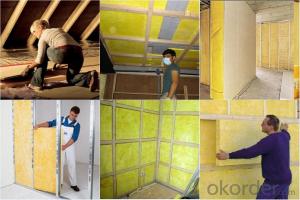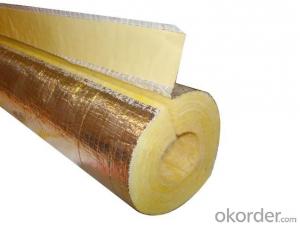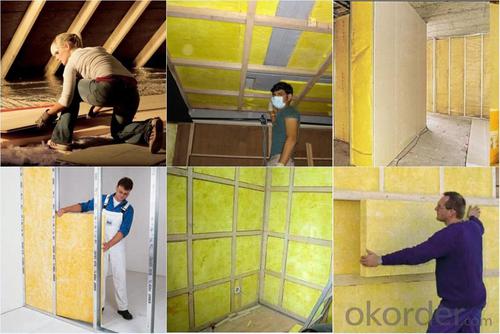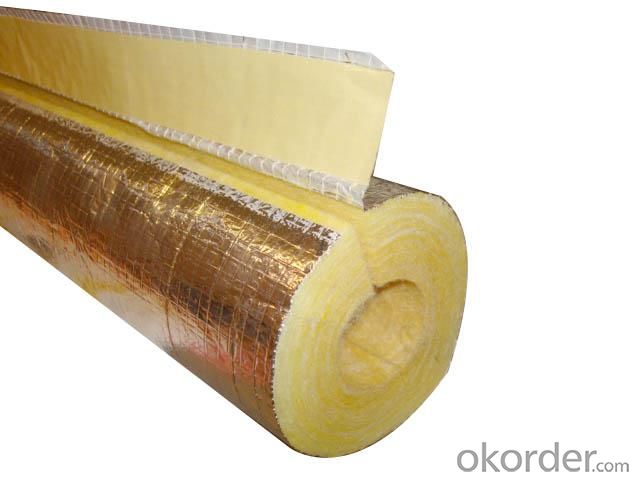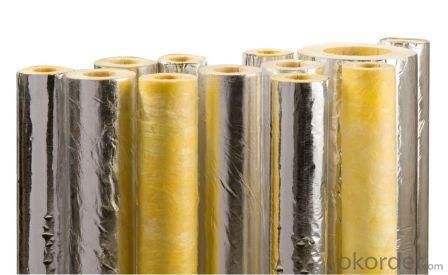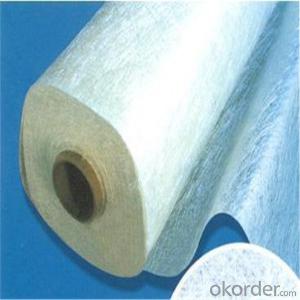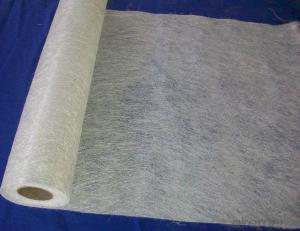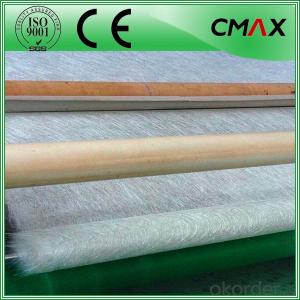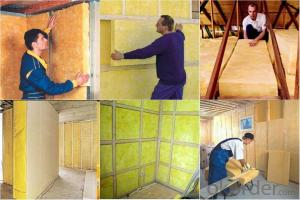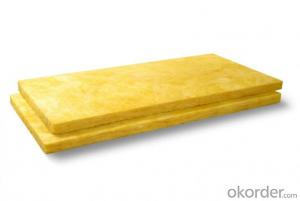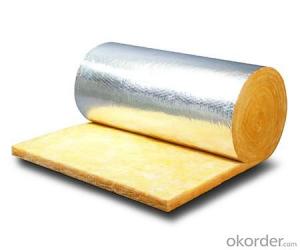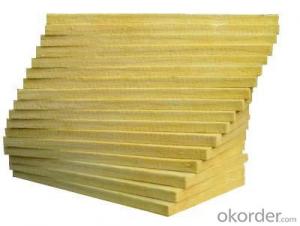Fiberglass Mat Tissue Reinforced Glass Blanket Glass Wool Building Materials with CE
- Loading Port:
- Tianjin
- Payment Terms:
- TT OR LC
- Min Order Qty:
- 5000 m²
- Supply Capability:
- 20000 m²/month
OKorder Service Pledge
OKorder Financial Service
You Might Also Like
1.Description of Glass Wool Insulation Blanket:
Glass Wool Blanket Continuous conveyors transport the mat to the COLD END of the plant for binder polymerization. The product is then cut to shape and packed for shipping. Also complete glass wool production lines employing latestgeneration technology to manufacture boards, rolled blankets and pipes for residential and industrial thermal and acoustic insulation needs, in compliance with the top international standards (EN, DIN, ASTM).
At the system HOT END, the raw materials are dosed, mixed, melted, fiberized, impregnated with a special binder and formed into a primitive mat of very fine fiber glass. Continuous conveyors transport the mat to the COLD END of the plant for binder polymerization. The product is then cut to shape and packed for shipping.
2.Main features of Glass Wool Blanket:
1.Light weight and easy to fabricate on job site
2.Excellent thermal, acoustical properties
3.Non-combustible and fire-retardant
4.Very economical, especially when using thick layers of insulation
5.Durable, life-time and termite proof
3.Glass Wool Blanket Images:
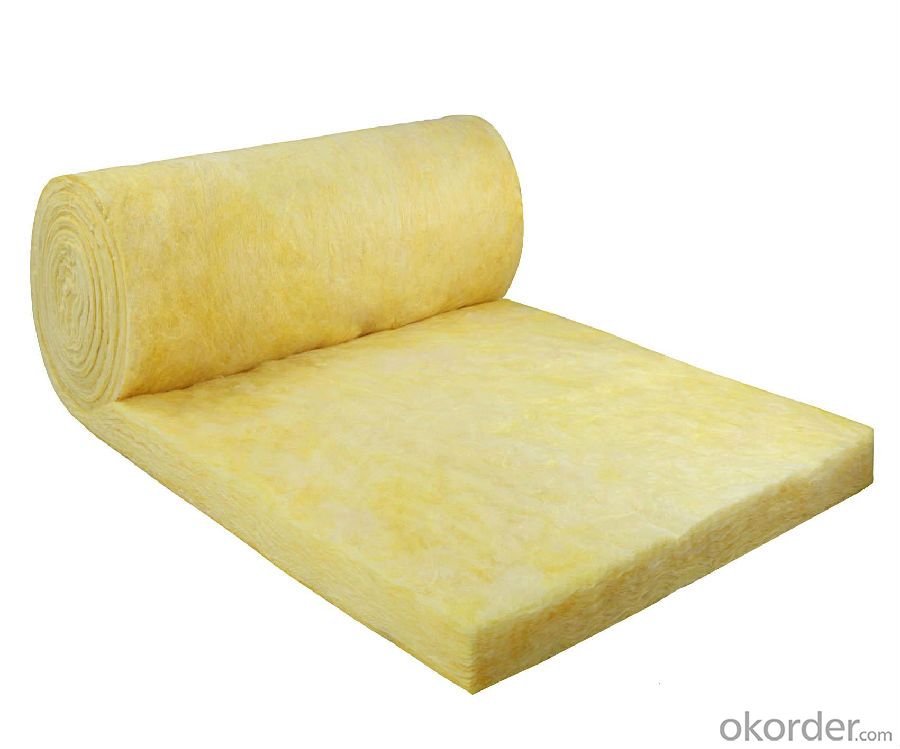
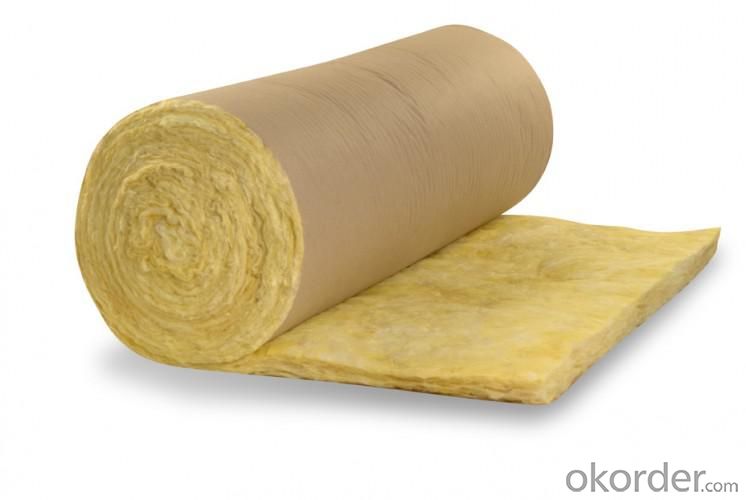
4. Glass Wool Insulation Blanket Technical Parameters:
Property | High/low temperature resistance, oil and fuel resistance, weathering resistance, O zone resistance etc. |
Shape | According to your requirement. |
Color | Any color is available ,according to your requirements. |
Material | NBR, CR, SBR, EPDM, IIR, NR, EP, Silicone, VITON etc. |
Hardness | 30-90ShoreA |
Delivery | In 10 days |
Packing | Plastic bag & carton box or according to your requirements. |
Application | Electronic field, industrial machine & equipment, house-hold appliance, telecommunication, automobile, medical equipment industry etc. |

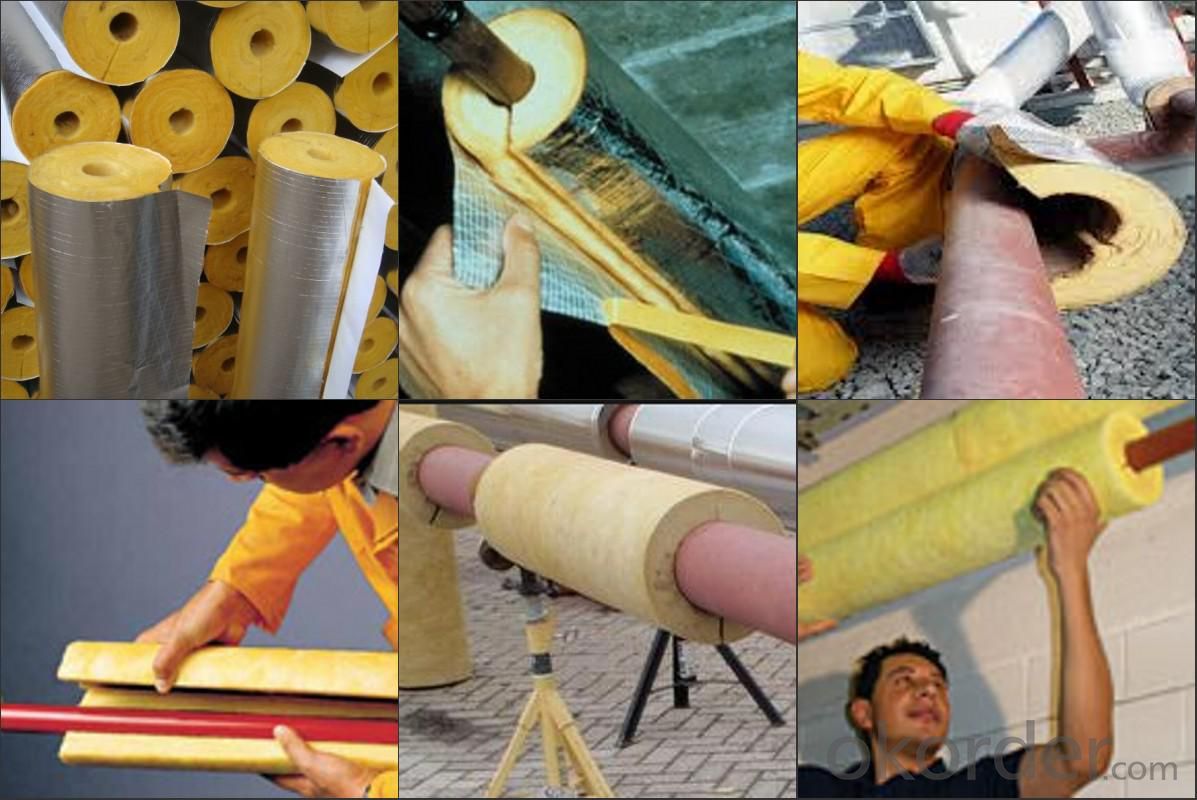
5.FAQ
We have organized several common questions for our clients,may help you sincerely:
①How about your company?
A world class manufacturer & supplier of Glass Wool Blanket is one of the large scale professional investment casting production bases in China,consisting of both casting foundry forging and machining factory. Annually more than 8000 tons Precision casting and forging parts are exported to markets in Europe,America and Japan. OEM casting and forging service available according to customer’s requirement.
②How to guarantee the quality of the products?
We have established the international advanced quality management system every link from raw material to final product we have strict quality test; We resolutely put an end to unqualified products flowing into the market. At the same time, we will provide necessary follow-up service assurance.
- Q: Can fiberglass mat tissue be used for electrical transformers?
- No, fiberglass mat tissue cannot be used for electrical transformers. Electrical transformers require materials with specific electrical insulating properties, such as paper or oil-impregnated materials, to ensure efficient and safe operation.
- Q: What is the dimensional stability of fiberglass mat tissue?
- The dimensional stability of fiberglass mat tissue refers to its ability to maintain its shape and size even when exposed to changes in temperature, humidity, or mechanical stress. Due to its high strength and stiffness, fiberglass mat tissue is known for its excellent dimensional stability, making it suitable for various applications such as insulation, reinforcement, and composite materials.
- Q: How is fiberglass mat tissue used in the production of agricultural equipment?
- Fiberglass mat tissue, a thin fiberglass material, plays a vital role in agricultural equipment production. It is mainly used as a reinforcement material during the manufacturing process of agricultural machinery like tractors, harvesters, and sprayers. One significant use of fiberglass mat tissue in agricultural equipment production is constructing structural components. The tissue reinforces body panels and chassis, providing strength and durability to the machinery. This reinforcement enhances the overall structural integrity and load-bearing capacity of the equipment, making it more reliable and capable of withstanding harsh conditions. Furthermore, fiberglass mat tissue is employed in agricultural equipment production due to its corrosion resistance properties. Agricultural machinery is often exposed to chemicals, fertilizers, and the elements. By incorporating fiberglass mat tissue in the manufacturing process, the machinery becomes more resistant to corrosion. This increases its lifespan and reduces maintenance costs. In addition, fiberglass mat tissue is utilized to enhance insulation and soundproofing capabilities in agricultural equipment. By adding layers of the tissue between panels and components, the machinery becomes better insulated against temperature fluctuations, reducing energy loss and improving efficiency. Moreover, the tissue helps dampen noise and vibration, creating a quieter and more comfortable working environment for operators. To summarize, fiberglass mat tissue is a vital component in agricultural equipment production. Its reinforcement, corrosion resistance, insulation, and soundproofing properties contribute to the overall performance, durability, and efficiency of agricultural machinery, making it an indispensable material in this industry.
- Q: Is fiberglass mat tissue suitable for insulation in hospitals?
- Yes, fiberglass mat tissue is suitable for insulation in hospitals. It provides excellent thermal insulation properties and is fire-resistant, which is crucial for ensuring the safety of patients and staff in healthcare environments. Additionally, fiberglass mat tissue is a durable and cost-effective option for insulation, making it a practical choice for hospitals.
- Q: How does fiberglass mat tissue perform in terms of thermal conductivity?
- Fiberglass mat tissue performs well in terms of thermal conductivity. Due to its composition of fine glass fibers, it has a low thermal conductivity value, meaning it is a good insulator against heat transfer. The interlocking fibers create a barrier that slows down the movement of heat, making it an effective material for thermal insulation applications. Additionally, the mat tissue is often combined with other materials, such as binders or coatings, to enhance its thermal resistance properties. Overall, fiberglass mat tissue is a reliable choice when it comes to minimizing thermal conductivity and providing insulation in various industries and applications.
- Q: Can fiberglass mat tissue be used for repairing fiberglass jet skis?
- Indeed, fiberglass mat tissue proves to be a valuable asset when it comes to restoring fiberglass jet skis. This material is frequently employed in fiberglass repairs due to its ability to fortify and reinforce afflicted regions. Its versatility allows for its use in a multitude of fiberglass repair scenarios, such as rectifying cracks or punctures found in jet skis. When skillfully applied, fiberglass mat tissue effectively reestablishes the jet ski's structural soundness, guaranteeing a resilient and enduring mending.
- Q: Can fiberglass mat tissue be used in wet environments?
- Yes, fiberglass mat tissue can be used in wet environments. Fiberglass mat tissue is designed to be resistant to moisture and can withstand exposure to water, making it suitable for applications in wet environments. It is commonly used in industries such as construction, marine, and automotive, where components or structures are exposed to water, humidity, or moisture. The material's resistance to water ensures that it maintains its structural integrity and does not degrade or lose its performance properties when subjected to wet conditions.
- Q: Can fiberglass mat tissue be used in automotive applications?
- Automotive applications can indeed make use of fiberglass mat tissue. This lightweight fabric, comprised of fine glass fibers, is frequently employed in the automotive industry for a range of purposes. These include reinforcing composite materials, enhancing mechanical properties, and decreasing weight. When it comes to automotive applications, fiberglass mat tissue is often utilized in the manufacture of fiberglass-reinforced plastics (FRP) components. These components encompass body panels, interior trim parts, engine covers, and various structural elements. By incorporating fiberglass mat tissue as a reinforcement layer during the production process, the strength, stiffness, and impact resistance of these components can be improved. Moreover, fiberglass mat tissue plays a vital role in reducing the weight of automotive parts while maintaining their structural integrity. This is of particular significance within the automotive industry, as reducing the weight of vehicles can result in heightened fuel efficiency and reduced emissions. In addition, fiberglass mat tissue boasts exceptional corrosion resistance, rendering it suitable for automotive applications that involve exposure to moisture, chemicals, and harsh environmental conditions. All in all, fiberglass mat tissue is a versatile material that can be effectively employed in a myriad of automotive applications. Its usage can enhance performance, reduce weight, and improve durability.
- Q: Is fiberglass mat tissue resistant to chemicals?
- Yes, fiberglass mat tissue is generally resistant to chemicals. The composition of fiberglass mat tissue, which consists of fine glass fibers bonded together with a resin, provides it with excellent chemical resistance properties. This resistance allows the fiberglass mat tissue to withstand exposure to a wide range of chemicals without deteriorating or losing its structural integrity. However, it is important to note that the specific chemical resistance of fiberglass mat tissue may vary depending on the type and concentration of the chemical it comes into contact with. Therefore, it is always advisable to consult the manufacturer's guidelines or conduct appropriate testing to ensure compatibility with specific chemicals.
- Q: How does fiberglass mat tissue compare to spray foam insulation?
- Fiberglass mat tissue and spray foam insulation are two different types of insulation materials with their own unique characteristics and benefits. Fiberglass mat tissue is a type of insulation made from woven strands of fiberglass. It is typically used in applications where thermal insulation is required, such as in walls, roofs, and attics. Fiberglass mat tissue is known for its high resistance to heat transfer, making it an effective insulator. It is also fire-resistant, which adds an additional safety benefit. On the other hand, spray foam insulation is a type of insulation that is applied as a liquid and expands into a solid foam. It can fill in small cracks and gaps, creating an airtight seal, which makes it an excellent choice for preventing air leakage and reducing energy loss. Spray foam insulation is also known for its excellent soundproofing qualities. In terms of installation, fiberglass mat tissue usually comes in large rolls or batts that need to be cut and fitted into place. It requires careful handling to ensure proper installation and may require the use of protective equipment, such as gloves and masks, as the fibers can cause skin and respiratory irritation. Spray foam insulation, on the other hand, is applied using specialized equipment that sprays the liquid foam onto the desired surface. It expands quickly, filling in any gaps or voids, and hardens within a short period of time. This makes it a more convenient option for insulating hard-to-reach areas or irregularly shaped spaces. When comparing the two, fiberglass mat tissue is generally more cost-effective, as it is less expensive to purchase and install compared to spray foam insulation. However, spray foam insulation provides better air sealing and can offer higher energy savings in the long run. In summary, fiberglass mat tissue and spray foam insulation have their own advantages and are suited for different insulation needs. Fiberglass mat tissue is a good option for thermal insulation, while spray foam insulation excels in air sealing and soundproofing. The choice between the two ultimately depends on factors such as budget, desired insulation performance, and the specific requirements of the project.
Send your message to us
Fiberglass Mat Tissue Reinforced Glass Blanket Glass Wool Building Materials with CE
- Loading Port:
- Tianjin
- Payment Terms:
- TT OR LC
- Min Order Qty:
- 5000 m²
- Supply Capability:
- 20000 m²/month
OKorder Service Pledge
OKorder Financial Service
Similar products
Hot products
Hot Searches
Related keywords
